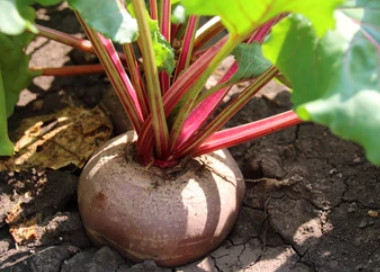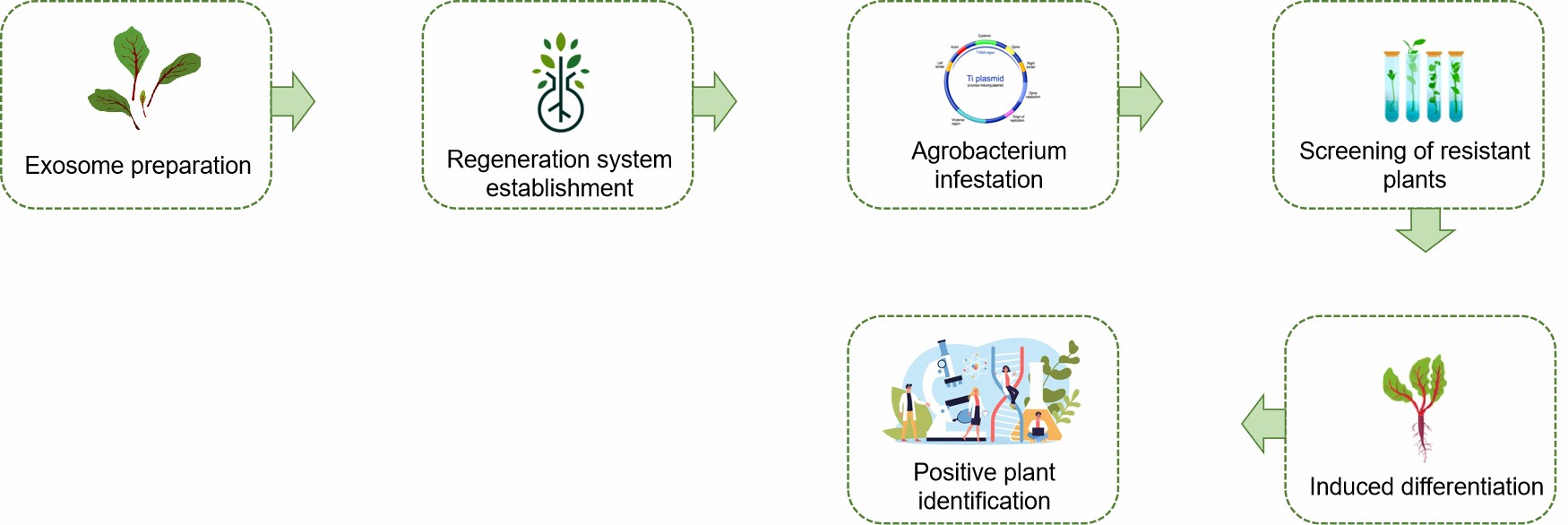Beta vulgaris (Beet) Transformation
Beta vulgaris is the second largest sugar-producing crop, accounting for about 40% of global sugar production. It is considered to have great significant contribution to the sugar, ethanol, and feed industries. To address the multifaceted difficulties of conventionally propagated species of Beta vulgaris, several biotechnological tools and techniques based on in vitro mass regeneration and genetic enhancement are becoming increasingly popular. Current research findings have practically proved that genetic transformation studies of Beta vulgaris are the most effective means of solving crop grass and insect pests. Therefore, it is of great research importance to carry out genetic transformation studies of Beta vulgaris to address the major problems in Beta vulgaris production.
Lifeasible is dedicated to plant genetic transformation research. Based on the difficulties encountered in the conventional cultivation and breeding of Beta vulgaris, we have developed a Beta vulgaris genetic transformation technology platform by optimizing the transformation conditions. Our high transformation rate technology platform is designed to provide high-quality service to our customers and promote the genetic improvement and application of Beta vulgaris.

What do we offer?
- Selection and preparation of explants. Suitable Beta vulgaris genotypes were selected as transformation materials, and young leaves or stem segments were usually chosen as explants.
- Tissue culture and regeneration system establishment. The explants were cultured in a medium containing hormones to induce the formation of healing tissues or direct induction of shoots and roots. In the study, genotypes' materials with high induction rates were screened, and the screening medium for induced differentiation was optimized.
- Genetic transformation. Target genes were introduced into Beta vulgaris cells using the Agrobacterium-mediated method or gene gun. In the Agrobacterium-mediated method, the optimal conditions for Agrobacterium infestation of Beta vulgaris need to be optimized, including the OD600 value of Agrobacterium and the infestation time.
- Screening and regeneration. Transformed cells were screened in a medium containing selective agents (e.g., antibiotics) to eliminate non-transformed cells. The screened cells were continued to be cultured and induced to differentiate to form regenerated plants.
- Molecular detection. Resistant plants were detected using PCR amplification to confirm the successful integration of the target gene into the Beta vulgaris genome.
- Identification and phenotypic analysis of transgenic plants. The successfully transformed plants were characterized at the molecular level, including the integration and expression of target genes. Meanwhile, the agronomic traits of the transgenic plants were phenotype to evaluate their yield, quality, and stress tolerance.
Our service process

Beta vulgaris transformation technology platform
- Agrobacterium-mediated transformation method. In Beta vulgaris transformation, the Agrobacterium-mediated method was used to introduce specific genes such as Bt genes into Beta vulgaris to improve its insect resistance and herbicide resistance. Agrobacterium-mediated transformation method has the advantages of high transformation efficiency and stable integration of target genes.
- Gene gun transformation method. The gene gun method shoots DNA directly into plant cells through high-speed microparticles, and this method has also been applied in Beta vulgaris genetic transformation. The gene gun method has the advantages of wide applicability and no limitation by genotype.
Our research objectives for Beta vulgaris transformation
- Improvement of Beta vulgaris quality. Establishment of efficient histoculture regeneration system of Beta vulgaris and application of genetic transformation technology in Beta vulgaris.We have genetically transformed Beta vulgaris by Agrobacterium-mediated method and optimized the optimal conditions for Agrobacterium infestation of Beta vulgaris, which can effectively improve Beta Beta vulgaris quality; for example, we successfully obtained positive histocultured seedlings containing Bt gene through Beta vulgaris genetic transformation, which helps to breed new Beta vulgaris varieties with better quality.
- Enhancement of Beta vulgaris stress tolerance. As an important osmoregulatory substance, Beta vulgaris alkaloids have important biological functions in improving the adaptability of plants to environmental stress and increasing their resistance to various stress factors. We can tap the essential genes that regulate the synthesis of Beta vulgaris base through genetic transformation studies and play an important role in improving the resistance of Beta vulgaris.
- Solving practical problems in production. Aiming at the problem of grass damage after mechanized planting, our research team conducts research on the creation of new herbicide-resistant Beta vulgaris germplasm to establish an efficient genetic transformation system for Beta vulgaris and perfect efficient genetic transformation methods for Beta vulgaris.
Why choose us?
- Strict quality control. We implement a strict quality control system to ensure the quality of our genetic transformation services and the reliability of our results.
- Personalized and customized services. We can provide personalized genetic transformation services according to the specific needs of our clients to maximize the satisfaction of their project needs.
- Good customer service. We provide thoughtful customer service, including technical consultation, project tracking, after-sales service, etc., to ensure customer satisfaction.
- One-stop technical support. We provide a one-stop genetic transformation service to help customers solve problems encountered in the process of genetic transformation to ensure the smooth progress of the project.
Lifeasible integrates the advantages of gene editing technology and genetic transformation technology and owns molecular laboratories, transformation laboratories, plant culture laboratories, seedling refining laboratories, etc. We have also independently built a multi-species high-throughput gene editing and genetic transformation platform and have mastered the core technologies of high-throughput gene editing and precision breeding. We have reached project cooperation with hundreds of universities, colleges and universities, agricultural academies, and seed companies. If you are interested in us, please feel free to contact us.
For research or industrial raw materials, not for personal medical use!

